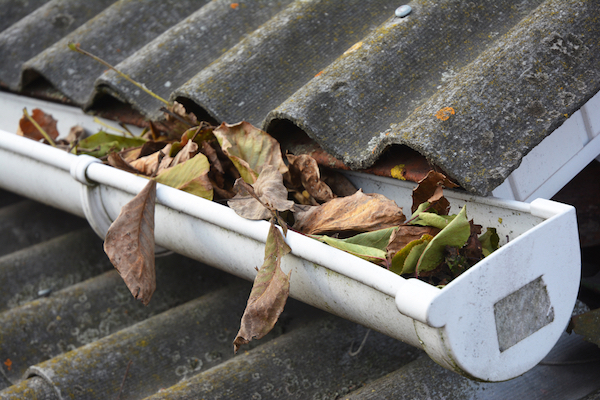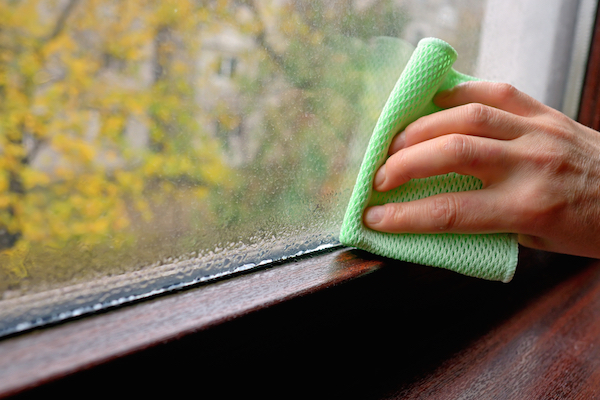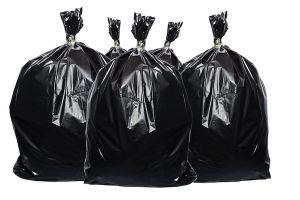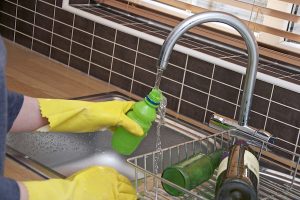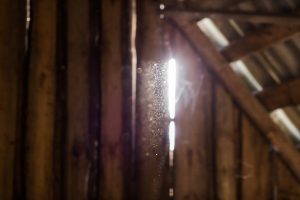Dragons and werewolves may not exist, but monsters do–we call them pests. What could be more monstrous than a creepy animal perfectly evolved to infiltrate your home and feed on your blood?! Even vampires can’t do that! If the monsters of real life are pests, the dragon slayers of legend would be pest control professionals.
But who are these monster hunters? How did they come to possess their deadly talents? To find out, we talked to one of our very own slayers: Joshua Reed is a Associated Certified Entomologist (ACE) and has worked at Griffin Pest Solutions since 2012. Here’s Joshua on how he came to be “the Bug Man,” the worst pest calls he’s ever taken, and which bugs still freak him out.
Note: this interview has been edited and condensed.
Griffin: How did you become an Associate Certified Entomologist?
Joshua: Getting to be a certified ACE is kind of a long process. First, you have to be a licensed pest control professional with five years of experience. Then, you undergo standardized professional training, which Griffin provided for me. I worked alongside other professionals and Michigan state-approved tutors to learn on the job and did a lot of reading and studying.
After you’re trained, you take the ACE certification exam. I’m certified in commercial pesticide application, so I had to take a sub-exam along with the general exam [Joshua’s taken exams for certification categories 7A: general pest management, and 7B: wood destroying pests]. It’s a pretty hard test; I guess something like 90% of applicants don’t pass the first time.

…And?
Oh, well… yeah, I passed the first time. I didn’t want to sound like a braggadocio. I’ve always been fascinated by bugs. When I was a kid, I would find weird bugs and want to know what it was. I’d have to look through books and it was tough to find any info. I think that’s why I passed the test. When I was studying for it, it was like I was answering my own questions.
Was that interest why you wanted to become an entomologist?
Kind of! Honestly, I sort of found this job by accident. My background is in construction work and heating and cooling repair. When the economy crashed a few years back, I looked for heating and cooling jobs, but I wasn’t having any luck.
I thought about going back to construction work, but my dad and other family members worked in construction too. They told me about the physical toll it can take on your body, so I was a little worried about that. Around then, I happened to see Griffin was hiring. I figured it sounded like a way to get back into learning about bugs again, so I applied.
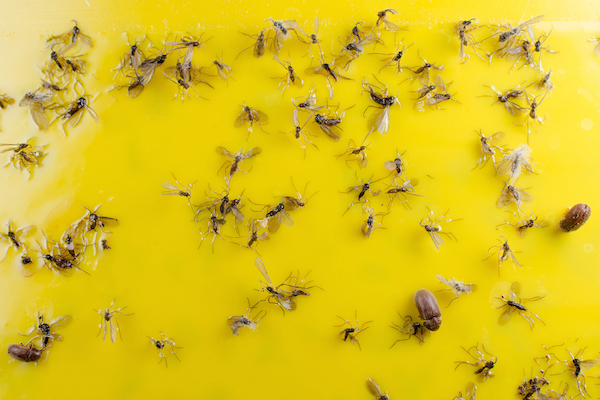
Pictured: a “glue board”, one of the tools Joshua frequently uses to find and remove pests.
What’s a typical day on the job look like for you?
I have a lot of regular commercial accounts, like food processing companies that need to meet strict FDA safety regulations. I do a lot of facility inspections. For those, I monitor the devices I’ve installed to make sure nothing’s getting into their product, check vulnerable areas… stuff like that.
If I find a pest, then I identify what it is, how it got in, and how we can make sure it doesn’t get in again. It’s kind of like being a pest detective. You have to be really thorough, too, so it can feel like trying to find a needle in a haystack. I’ve monitored facilities with 1,200-plus devices before!
That’s a big haystack.
A really big haystack!
What about residential calls?
I do plenty of those too. They’re really rewarding. People get understandably freaked out by spiders, moths, rodents, or whatever, and it feels good to help them feel better. I just like talking to people, too.

What do you wish more people understood about pest control?
It’s a gradual process. Sometimes people expect immediate results, but that’s just not how it works. To truly end a pest problem, a technician has to break the life cycle of the infestation. We like to say, ‘We might look like we’re waving around wands, but we’re not doing magic.’ It’s just biology at work–and it might take weeks, not hours or days.
The other big thing is, I wish more people understood that pest control is a team effort. When we make suggestions as to exclusionary or sanitary precautions, we’re not judging. We just really want to make sure your pest problem goes away and stays gone.
What are some of those recommendations?
Exclusionary tactics. Keeping pests out of a structure in the first place is what everyone really wants. My best advice would be to make sure nothing touches the outside of your home. Keep the area around the perimeter clear for at least 18 inches. Remove hanging tree branches, bushes, stuff like that.
Oh, and don’t use mulch near your home. Mulch is great for plants, but it also attracts bugs like crazy. Try to keep the area around your home as dry as possible. Pests need shelter, water, and food to live, like anything else. Take those away, and they won’t be able to live around your house.
WARNING: Scary pest stories beneath this nice, non-threatening bee
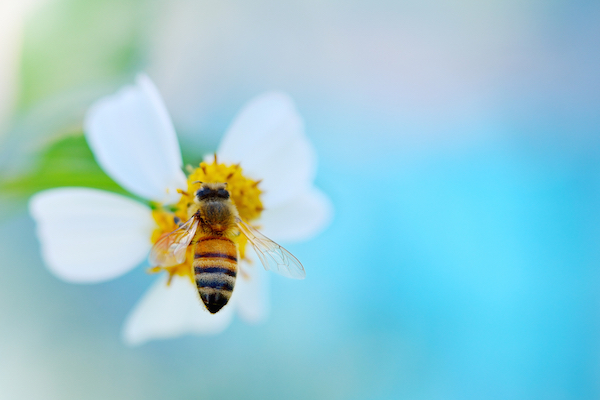
Buzz! I’m the content warning bee! Don’t read on if you’re grossed out easily! Buzz!
We have to ask: do you have any pest horror stories?
Early in my career, we went to a trailer park to deal with a roach problem. This trailer was going through something we call a “rainer.” “Rainers” happen when there are so many cockroaches crammed into a space that they don’t have anywhere to hide. They literally burst out of the woodwork, climbing on top of each other, crawling along the walls, and raining from the ceiling…
There was a little girl living in this particular home, and she was excited to see me. She asked me if I was “the Bug Man”–when you’re in pest control everyone calls you “the Bug Man”–and I noticed she had sores on her face. That’s when I learned that, when too many cockroaches live in too small a space, they run out of things to eat. That’s when they get aggressive, and feed on hair follicles and food remains left on people.
Oh.
Yeah, it was really disturbing. It was an important call for me, though, because that’s when I “got” pest control. I could see I was doing something important and helping people.
Does being a pro make you immune to the heebie-jeebies? Or do pests still freak you out?
There’s definitely a level of desensitization that comes with the job. The longer I do it, the less pests freak me out. There are still some, though… When I was really young, I was fishing at my grandpa’s pond and I stepped on a yellowjacket nest under the dock. A bunch of the yellowjackets flew up my pants and stung the holy crap outta me.
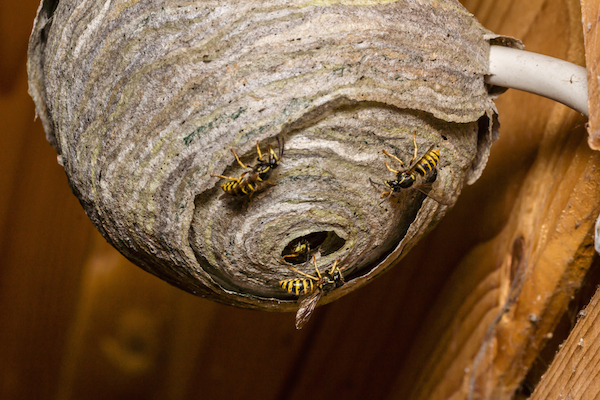
Pictured: Wasp nest
Yikes!
Yeah. My fear of bees was probably the hardest thing to overcome during training. I can work with bees now–you just need to learn to trust the bee suit–but I definitely understand people’s fear.
Anything else freak you out?
I don’t like crawl spaces very much. You’re down there crawling through spider webs and trying not to think about it, but part of you knows there’s spiders all over you. It’s ironic–I’ve been down in crawl spaces for work since before I was a pest control person, and they still get to me. Some of my co-workers aren’t bothered by them at all, though.
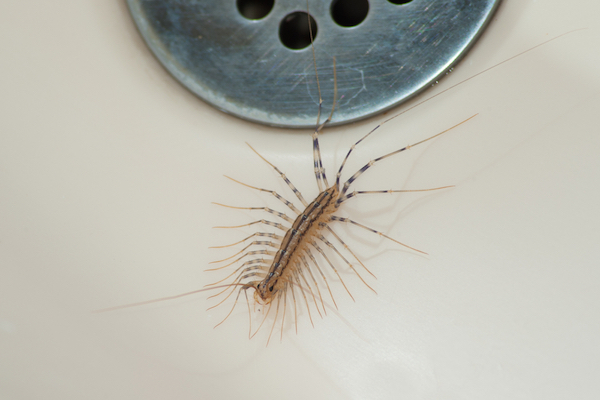
Realizing this interviewer would have to find a picture like this was the hardest part of this interview.
What about house centipedes? This interviewer…. doesn’t like house centipedes.
Oh yeah, with the really long legs? Those things look like something straight out of a horror movie. I totally get that. Especially if there’s one on you…
Ok thanks bye now!
Joshua “The Bug Man” Reed’s professionalism, expertise, and conscientiousness embody the kind of legendary service you can expect from start to finish when you call Griffin Pest Solutions.
If you have a pest problem–whether it’s residential or commercial, large or small, “rainer” or house centipede–let us know right away. We’ll slay that dragon, no sweat.



